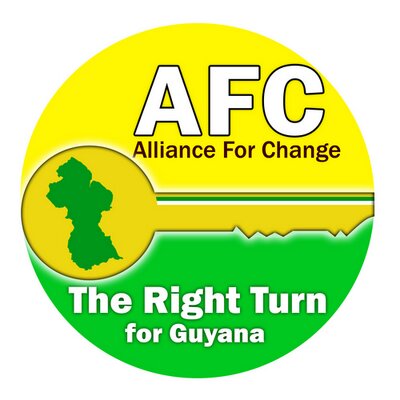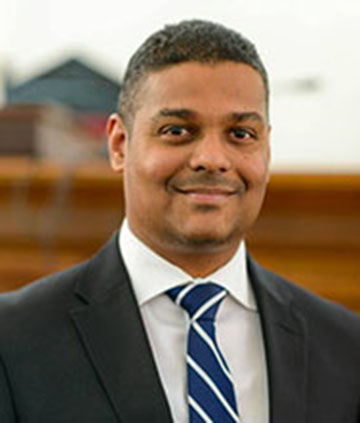No date has yet been set by the High Court on when the elections petitions filed by the Opposition A Partnership for National Unity + Alliance for Change (APNU+AFC) will be called, nor has a judge been assigned to the matter yet.
The first petition was lodged on Monday August 31st and the second September 17th.
When a date is announced, however, that initial hearing is likely to be to facilitate a case management conference (CMC) at which timelines will be set to guide subsequent hearings.
 The Opposition APNU+AFC coalition is challenging the results of the March 2nd General and Regional elections which saw the People’s Progressive Party/ Civic (PPP/C) winning the seat of government.
The Opposition APNU+AFC coalition is challenging the results of the March 2nd General and Regional elections which saw the People’s Progressive Party/ Civic (PPP/C) winning the seat of government.
The results of a national recount of all ballots cast showed that it was the PPP/C which had won the elections with 233,336 votes over the 217,920 which the coalition managed to secure.
In accordance with the National Assembly (Validity of Elections) Rules Cap. 1:04, there are a number of procedural requirements which must first be satisfied before the petition commences. Among them is the filing of addresses for service documents.
Once the stipulated procedures are met, the Chief Justice, in accordance with Rule 21 (a) will then determine which judge will try the petition and can also direct in which county the petition is to be heard.
A petition can also be heard by the Chief Justice.
In accordance with subsection (c) the judge trying the petition will then fix the day and time of the trial and at 14 days’ notice thereof shall be published by the Registrar in the Gazette and one newspaper and served on the petitioner, the respondent and the Chief Election Officer.
Claudette Thorne and Heston Bostwick—who are listed as applicants in the first petition, want the court to determine among other things, questions regarding whether the elections have been lawfully conducted or whether the results have been, or may have been affected by any unlawful act or omission and in consequence thereof, whether the seats in the National Assembly have been lawfully allocated.
They depose through their attorneys John Jeremie and Roysdale Forde, Raphael Trotman and Olayne Joseph that the elections were unlawfully conducted and/or that its result, “(if lawfully conducted)” were affected or might have been affected by unlawful acts or omissions and that what was therefore declared by the GECOM in pursuance of Section 99 of the Representation of the People Act (ROPA) was not lawfully conducted.
In the second petition through petitioners Monica Thomas and Brennan Nurse, APNU+AFC wants the court to specifically order the Chairman of the Guyana Elections Commission (GECOM) to declare its Presidential Candidate, David Granger, “the duly-elected President of Guyana in accordance with Article 177 of the Constitution.”
The petition contends that the elections were unlawfully conducted and/or that the results (if lawfully conducted) were affected or might have been affected by unlawful acts or omissions.
It says that the national recount of votes cast uncovered numerous discrepancies and irregularities, which affected the integrity of the entire electoral process, thus rendering it null, void and of no effect.
Among the contentions raised are that GECOM failed to discharge its constitutional functions, exercise general direction and supervision over the registration of electors, and the administrative conduct of all the elections of members of the National Assembly.
It also argues that GECOM failed to discharge its constitutional and statutory duty to complete the house-to-house registration process and to create, maintain and use a “credible list of electors” for electoral purposes.
Attorney-at-law Kamal Ramkarran, one of the lawyers in the petition, who represents political party A New and United Guyana (ANUG) had advanced that there will be concerns about abuse of the process of the court should two petitions be filed.
Referencing case law authority, he said that all issues should be raised in one set of proceedings.
Owing to how inextricably bound the two petitions are likely to be since they touch and concern the one election, there may well be implications for the legal principle of res judicata.
It is to be seen how separate and distinct the two petitions can be one from the other.
Res judicata is a legal principle that speaks to ensuring finality in litigation and applies where a matter has been adjudicated on by a competent court so that it cannot be re-litigated.
If both petitions are placed before the same judge, there may be a possibility for the matters to be consolidated as is the common practice of the courts where matters arise out of the same issue.
Swift hearing
The Opposition is calling for a speedy hearing and for the case to be dispensed with swift dispatch.
But with the now government’s 2015 petition still not concluded, it remains to be seen with what alacrity the current petition will be dispensed.
In Guyana, such petitions take a very long time to be heard and are usually the reason an aggrieved party does not like to file it. The 1998 elections petition by Esther Perreira on behalf of the PNC was not concluded until 2001.
With the governing PPP/C’s 2015 petition still not complete, questions have been raised as to whether that would first have to be finished before the court can proceed with the current petition.
Stabroek News had sought legal opinions from several attorneys who have indicated that while there is no law stipulating that an older elections petition has to be completed before a new one, cases should generally be heard in the order that they are filed.
Ramkarran had said that this is a general rule.
On this point he explained that there are two guiding principles—the first is that cases should generally be heard in the order that they are filed, barring exceptional circumstances requiring urgency; and the second he said, is that if there is a case which, for some reason, is not being heard as quickly as it should, then all steps should be taken as are necessary such as engaging the Registrar and writing to the Chief Justice to have it heard.
The lawyer opined further that, if you have one petition languishing through no fault of the Petitioner and another rushed through the court, “that could raise eyebrows.”
Following the PPP/C being sworn into office on August 2nd, Attorney General Anil Nandlall had been asked whether his party would still be pursuing the petition it had filed in 2015 or whether it would be withdrawn.
He had said that he had received no such instructions to withdraw, clearly stating that they intend to follow through with their challenge.
Ramkarran has, however, opined that the 2015 petition has lost its utility since another election has already been held; and will therefore only have academic value now.
“The 2015 petition is academic. No practical purpose would be served by having the 2015 election results vitiated. We’ve had elections,” Ramkarran said.
In an interview with this newspaper back in April to ascertain the status of the 2015 petition filed by his party, Nandlall had said that five years on, their petition was yet to be determined.
Nandlall had told this newspaper that in the Commonwealth, the experience has been that elections petitions are dealt with by the judiciary quite speedily. Referencing Trinidad & Tobago, he had said that petitions were filed in 2016 and disposed of within 6 months.
“In Guyana, unfortunately, the PPP filed an elections petition in May 2015, another election has come and gone and that elections petition is yet to be heard and determined. That remains a tragedy,” he has said.
The Opposition coalition has been calling for its petitions to be heard with what it said was the same swiftness with which the numerous legal challenges were heard from March to late July to certain aspects of the March 2nd elections. Those challenges were mounted before an official declaration.
Nandlall had explained that in Guyana, the National Assembly (Validity of Elections) Act and accompanying Rules is the specific legislation and rules which govern the procedure, time frame and other regulatory matters governing the filing, conduct and disposal of an elections petition.
He had noted that the legislation provides that once the trial of an elections petition begins, it must be conducted on a daily basis; while noting that it is the only type of litigation that attracts such a statutory exhortation in terms of the speed by which it is to be conducted.
“The …reason is that a society must settle, in the quickest possible way, who would comprise the Executive Government and the Parliament as these are essential institutions of any democratic state to ensure there is good government, peace and public order,” Nandlall had said.
Appealable
In Guyana, elections petitions are appealable all the way to the Caribbean Court of Justice (CCJ).
Article 163 (1) vests in the High Court the exclusive jurisdiction to determine the petition; while subsection (3) provides that an appeal shall lie to the Court of Appeal.
Meanwhile, Section 8 of the CCJ Act says that “Subject to Section 7, an appeal shall lie to the Court with the special leave of the Court from any decision of the Court of Appeal from any civil or criminal matter.”
Section 7 prescribes, “An appeal shall lie to the Court, with the leave of the Court of Appeal, from a decision of the Court of Appeal – (a) in any civil proceedings where, in the opinion of the Court of Appeal, the question is one that by reason of its great general or public importance or otherwise, ought to be submitted to the Court; and (b) in such other cases as may be prescribed by any law.”
Ramkarran explained that all decisions of the Court of Appeal can be appealed by leave of the CCJ and it is this court (the CCJ) which decides which they will hear and which they will not.
He said that the apex court’s jurisdiction to hear an appeal on an elections petition is implied.
In the case of Mohamed Irfaan Ali and Bharrat Jagdeo v Eslyn David et al the CCJ had pronounced at paragraph 31 “…It would also, potentially, be infringing on the jurisdiction of this Court which is entitled ultimately to hear appeals from proceedings that begin in the High Court and which properly fall under Article 163.”
This case was one of a number filed during the 5-month period before an official declaration of results from the March 2nd polls was finally made on August 2nd.
Following the March 2nd, elections which became marred in controversy over the tabulation of votes for Electoral District Four, a full five months would elapse during which a national recount was done and a plethora of litigation mounted before an official declaration was finally made.
Thorne and Bostwick are hoping that the court would quash the elections, set aside the declaration of August 2nd and order fresh elections.
The recount is said by coalition commissioners of the Guyana Elections Commission (GECOM) to have revealed numerous anomalies affecting the credibility of the polls.
They and members of the current opposition had wanted those issues resolved but Chairperson of GECOM Justice (rtd) Claudette Singh had said that the Commission is not a court and therefore not vested with the powers to embark on such an enquiry and had said that an election petition would be the required route.
In tomorrow’s edition Stabroek News will be publishing a timeline of the key events since the December 21, 2018 motion of no confidence.





